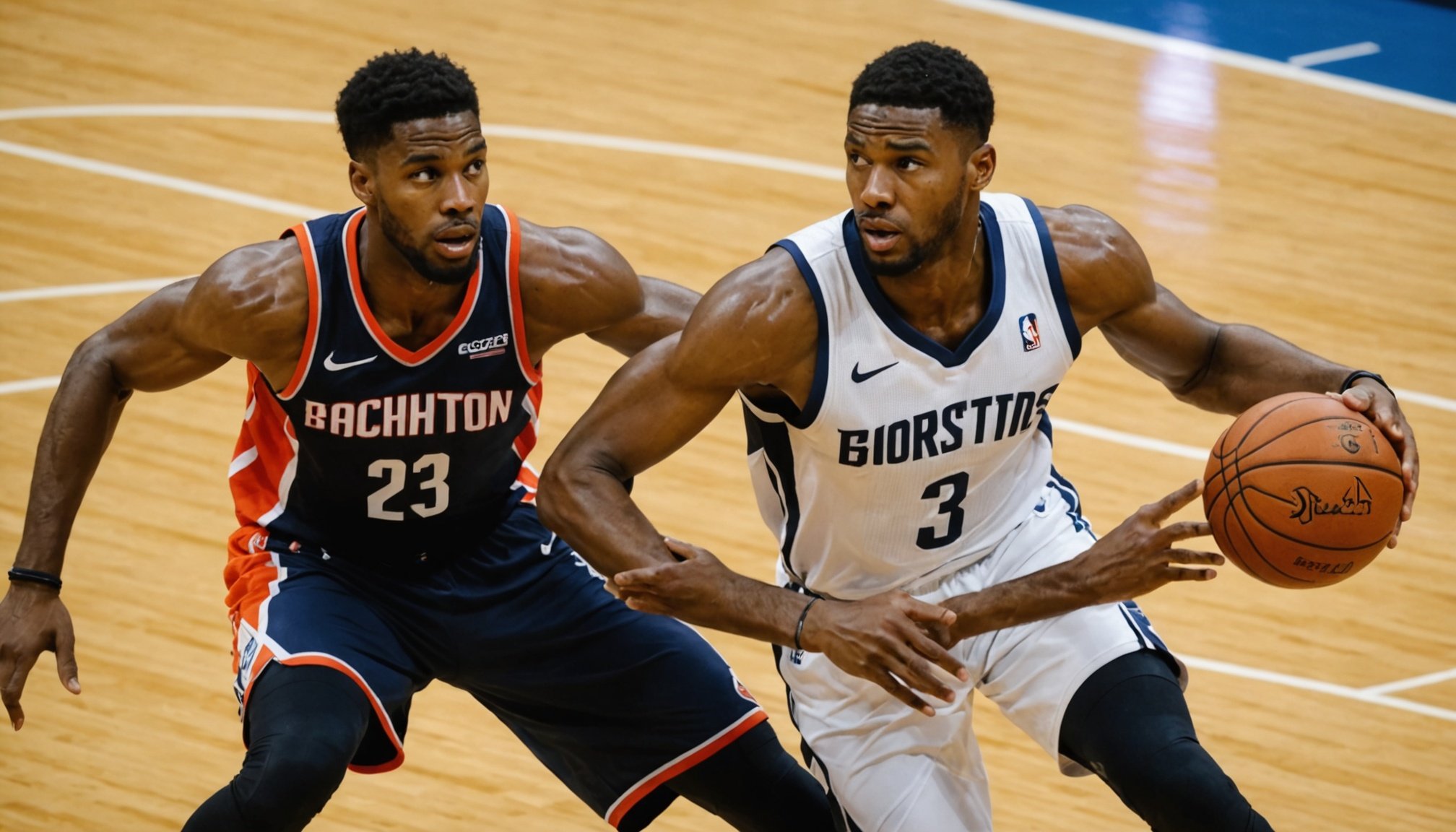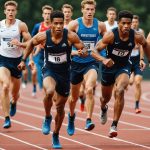As athletes lace up and step onto the glossy hardwood court, their minds are already at work, orchestrating a ballet of thoughts and emotions. In basketball, where a millisecond can be the difference between triumph and defeat, the psychological state of players is as critical as their physical prowess. Understanding the nuances of sports psychology offers profound insights into how a player’s performance is shaped and honed. This article delves into the intricate world of sports psychology, shedding light on its pivotal role in shaping basketball players into formidable athletes, both mentally and physically.
The Role of Sports Psychology in Enhancing Performance
Basketball is a game of both skill and mental agility, with sports psychology playing a significant role in enhancing player performance. At its core, sports psychology focuses on the mind’s influence over physical execution in the game. Players often encounter high-pressure situations that can lead to stress and anxiety, affecting their performance levels.
This might interest you : What are the psychological effects of pressure on basketball players during playoffs?
Psychological Skills Training
One of the key components is Psychological Skills Training (PST), which equips athletes with tools to manage their mental state during games. PST encompasses techniques like visualization, where players mentally rehearse plays to enhance their focus and performance. By envisioning successful outcomes, they can reduce anxiety and improve self-confidence on the court. Techniques also include goal-setting, which helps in setting achievable objectives, and self-talk, which fosters a positive mindset.
Stress Management
Stress is an unavoidable part of competitive sports, and basketball is no exception. With a coach’s guidance, players can learn stress management strategies, such as mindfulness and meditation, to stay calm under pressure. These methods are grounded in extensive studies—many of which can be found on PubMed—demonstrating their effectiveness in reducing anxiety and increasing performance.
Also read : What are the most common injuries in basketball and how can players prevent them?
Team Dynamics and Cohesion
Beyond individual skills, team dynamics also play a part in the mental game. Sports psychologists help teams foster a sense of unity, enhancing communication and trust among players. A cohesive team tends to perform better, as players support each other, leading to improved morale and overall performance. Study after study shows that players who feel connected to their team are more likely to perform at their best, facing challenges head-on with a united front.
The Science Behind Mental Conditioning
In the world of basketball, mental conditioning is as crucial as physical training. But what underlies these psychological strategies? How do they directly impact a player’s game? By turning to scientific data and research, we’re able to uncover the foundations of mental conditioning.
Neuroplasticity and Performance
Neuroplasticity refers to the brain’s ability to adapt and change in response to new experiences. This adaptability is instrumental in sports as players practice and develop skill sets. Studies show that targeted mental exercises can enhance this plasticity, making players more adaptable and capable of learning new strategies quickly. This adaptability is critical in high-stakes games where real-time decision-making is essential.
The Role of Psychological Research
Research, often found through resources like PubMed, is essential in understanding how sports psychology can be leveraged to improve performance. Studies have identified numerous benefits of psychological interventions, including reduced anxiety and improved focus. These findings emphasize the importance of a well-rounded approach that integrates psychological strategies into routine training sessions.
The Importance of Data
Incorporating data-driven methods into training provides a scientific basis for understanding how psychology affects player performance. Coaches and psychologists analyze performance metrics, identifying patterns and areas for improvement. By using this data, they can tailor mental training programs to suit individual players, ensuring that psychological strategies contribute effectively to performance enhancement.
Overcoming Psychological Barriers in Basketball
Every athlete encounters mental barriers, and basketball players are no exception. From performance anxiety to the fear of failure, these barriers can impede a player’s ability to perform at their best. Tackling these issues head-on is crucial for success on the court.
Addressing Performance Anxiety
Performance anxiety is a common challenge faced by many athletes. The intense pressure to excel in front of spectators can lead to self-doubt and apprehension. To combat this, players employ techniques such as deep breathing and visualization, aligning their mental state with their physical abilities. These strategies help in maintaining composure and focusing on the game rather than succumbing to pressure.
Building Resilience
Resilience is the mental fortitude to bounce back from setbacks. Basketball, with its fast pace and unpredictability, demands a high level of resilience from its players. Building resilience involves fostering a growth mindset, where challenges are seen as opportunities for development rather than insurmountable hurdles.
The Importance of Support Systems
The role of coaches, teammates, and even sports psychologists is critical in overcoming psychological barriers. A supportive environment allows players to share their concerns and receive constructive feedback. This interaction not only builds confidence but also enhances the overall mental health of the team, furthering their collective success.
Leveraging Psychological Studies
Studies and research, accessible through platforms like Google and PubMed, provide insights into overcoming psychological barriers. By leveraging these findings, coaches can implement proven strategies to help players navigate mental obstacles effectively, ensuring they remain focused and driven.
The Future of Sports Psychology in Basketball
As the understanding of sports psychology continues to evolve, its influence on basketball is expected to grow exponentially. Moving forward, the integration of psychological training into standard athletic programs is anticipated to become the norm, rather than the exception.
Technological Advancements
With the advent of technology, new avenues for psychological training in basketball are emerging. Wearable devices and apps are now available to monitor stress levels and provide real-time feedback to players. This integration allows athletes to practice mindfulness and other psychological techniques conveniently, aiding in performance enhancement.
Emphasis on Holistic Training
The future of basketball training involves a holistic approach, blending physical training with psychological conditioning. This comprehensive training model ensures that players are equipped to handle the multifaceted demands of the game, both mentally and physically.
Educational Initiatives
Educational initiatives aimed at raising awareness about the importance of sports psychology are also on the rise. By incorporating these topics into scholar programs and coaching certifications, the next generation of athletes and coaches can be better prepared to utilize psychological strategies to their advantage.
Research and Development
Ongoing research and study will continue to unearth new insights into the mental aspects of sports performance. By staying at the forefront of these developments, the basketball community can ensure players are equipped with the latest techniques to optimize their game.
Conclusion
In conclusion, sports psychology serves as a crucial underpinning in basketball performance, offering players the tools to harness their mental capabilities. By understanding and leveraging psychological principles, players can achieve peak performance, transcending the physical limits of the sport. As the field continues to evolve, its influence on the game will only deepen, making it an indispensable component of basketball training and competition.











